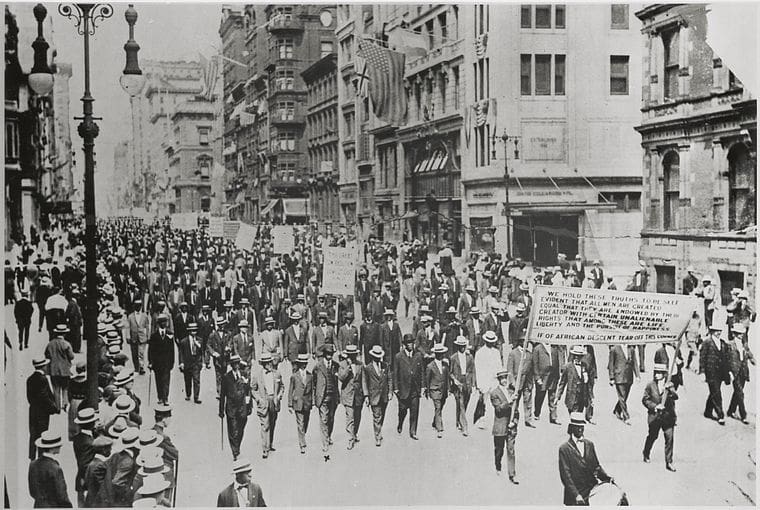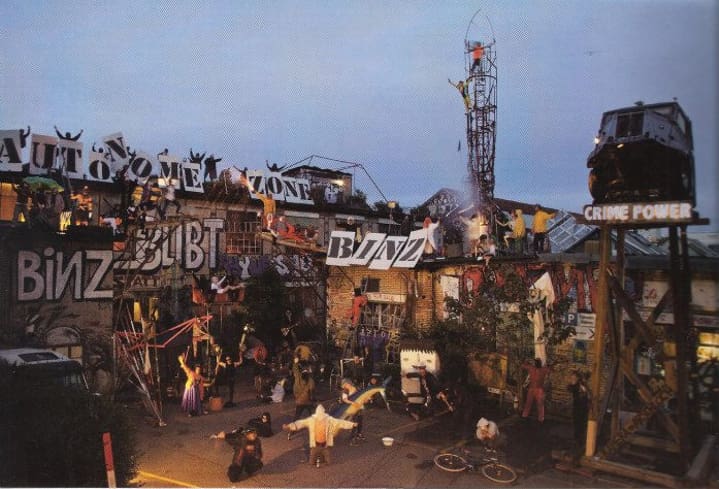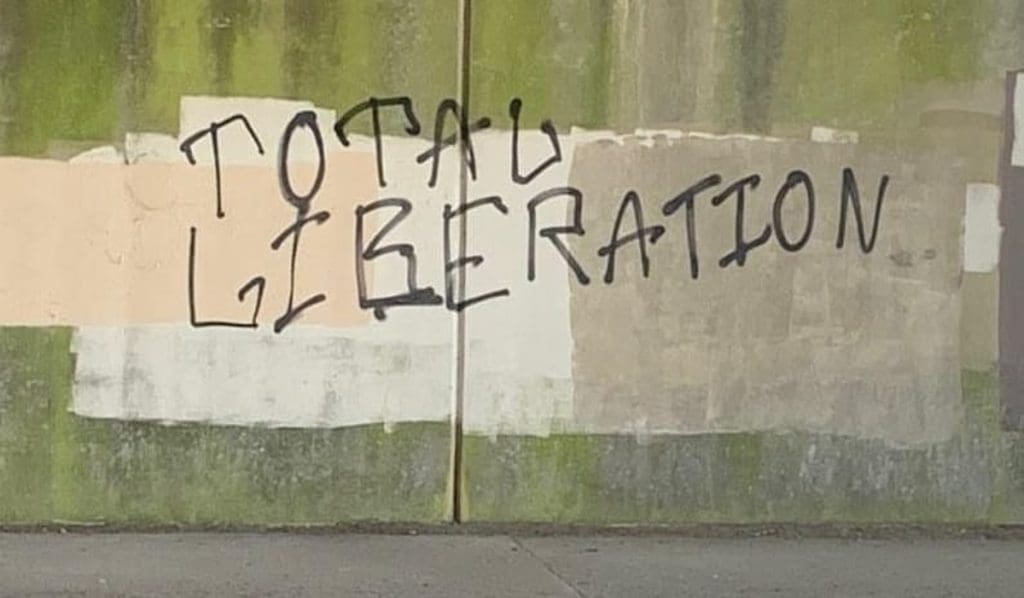AntiNote: Transcribed from This is Hell! Radio and printed with permission. Archived audio to be made available online eventually.
On 1 February 2014, This is Hell! host Chuck Mertz talked with sociologist and writer Kevan Harris on a wide range of topics which have one essential thing in common: nobody else seems to be talking much about them.
“There’s not a nuclear weapons program. But that doesn’t stop anybody from using dog-whistle polemic.”
Chuck Mertz: We’re talking to Kevan Harris, the Radical Pessimist. First some dumb questions that I thought of this week. Can you help me with the origins of the words Iran and Iraq? I’ve been thinking about this recently. What do those words mean? Are they just made up by Brits?
Kevan Harris: No. In Iraq’s case they trace back quite far. It was an Ottoman province, I believe. Some of these names come from Ottoman provincial rule, when they had the Ottoman Empire carved up into millets, like provinces. That’s my guess, I’m not sure on that.
On Iran, part of it is what we call the invention of tradition, how countries invent their cultures. The word Iran is found in ancient texts. But really it comes from the late 19th century when intellectuals inside Persia—and also scholars of the Middle East and Europe—were trying to map out all the races of the world and the languages of the world.
Persian falls in the Indo-European language family. Unlike Arabic, which are Semitic languages. Back then there was a theory that race and language were mapped onto each other—and there was this theory that the Aryan race originated somewhere in Northern India a long time ago and then migrated through Iran, you get Aryans there, and then you know, the Germans ran with it for a while.
In the 1920s and 1930s, when the name was first changed to Iran, these kinds of theories were very popular. So it’s not like Iran is called Iran only because a bunch of Germans were getting crazy about Aryan theory, but it does have to do with the relationship between Europe and the new political elites in Iran in the early 20th century. They were trying to ‘modernize’ the country at the time. When you really want to modernize something, you’ve got to start fresh, start with a new name. So that’s how it became Iran.
CM: The other thing I wanted to ask you about real quick: past guest on the show Gareth Porter has a new book coming out on February 18th called Manufactured Crisis: the Untold Story of the Iran Nuclear Scare and we will have him on the show to discuss that book. In it, he says the narrative that Western governments and media created over the course of two decades, that Iran was pursuing a covert nuclear weapons program, was based on falsehoods and fabricated evidence.
What would be the motivations for the U.S. or the West to have policy based on falsehoods and fabricated evidence? I know that trying to guess motivations is a huge mistake—that’s what Vince Bugliosi has told me numerous times. Guessing at motivations is what leads to faulty conspiracy theories. But let’s say Gareth is absolutely right—what can we learn from knowing that the Iran nuclear scare is a manufactured crisis?
KH: Well, this information has been out there for years. It gets reported on by Sy Hersh, by Gareth, and by other people that there’s no nuclear weapons program per se. This information has been out in the public domain for ten years, but that doesn’t stop people from using polemic. You know, they use the term “nuclear weapons program.” Some of the more rightwing congressmen will put the word “weapons” in their press releases, as a sort of dog whistle.
You know what, it’s politics. It doesn’t really matter. That information is out there. Depending on which side ‘wins,’ in the future we’ll look back and say, oh yeah, that was the way it always was. We’ll write the present from the perspective of the future. But frankly it’s about politics, it’s really not about the truth. These things are available. Some journalists come out and say—and everybody knows; the intelligence agencies have said—there’s not a nuclear weapons program. But that doesn’t stop anybody.
CM: Alright, so what do you want to tell us about today, Kevan?
KH: Three weeks ago I was in Moscow and I gave this talk about the U.S. Federal Reserve and how its policy of Quantitative Easing came about, and I asked: what happens when they turn off the spigot of all this money? In the last week it’s actually happened, this big shock to the so-called emerging markets, the Third World countries’ financial systems.
“The U.S. Federal Reserve is essentially throwing money from a helicopter and hoping that it lands in the right place.”
So I just want to break that down a bit for people if they want to get a little bit of background. One of the ways that the United States tried to deal with the financial crisis of 2008—because it couldn’t do anything with fiscal policy; Congress, Obama, they didn’t pass much except for TARP—the real money was in the Federal Reserve throwing billions of dollars at the financial sector, giving them money for free. Basically at 0% or even negative interest rates. And they could do whatever they wanted with it, but they didn’t put it back into the U.S. economy. They didn’t do anything with this money that would have helped the United States get out of the recession. What they did was they wrote down their bad debts, and then they took that money and threw it out overseas into all kinds of bubble markets—blowing financial bubbles all over the Third World.
That’s why the entire market was going up like gangbusters last year, but it’s also why in China, India, Turkey, some of these so-called emerging markets, bankers were lining up at the door, saying “take money from me, take money from me!” “No, take money from me!” And those kinds of things cannot, by definition, last forever.
So in the last couple weeks it finally hit the wall. And we’ll see what happens. But it’s not a coincidence. It’s just amazing how fickle this financial sector is. This herd mentality. Everybody knew this was going to happen for the last six months, but no one wanted to go first. And as soon as a particular type of news comes out, all of the sudden people start running for the door. Turkey’s in a political scandal (though that’s not the only reason) and all of the sudden people are pulling out billions of dollars from the Turkish economy, out of India, out of China, out of South America over the last week, and that’s forced the central banks in these countries to raise interest rates to try to stem the flow of people selling those countries’ currencies and buying dollars.
Last week the head of the Indian Central Bank—the equivalent of Ben Bernanke in India, a pretty famous economist—properly criticized the United States: he said the United States makes policy to get the United States out of a recession, and it affects the whole world, and they don’t coordinate with anybody. So when they sneeze, India gets a cold, that’s the old phrase. That’s what’s going on right now. The poorer countries of the world are getting a cold because the United States sneezed. It’s unfair and it shows how the balance of power works in the world economy, but it also shows what came out of the 2008 crisis.
There was all kinds of talk about building a new global financial system to smooth out the crazy risks that are being established. There was talk of giving China, India, and Brazil more power at the World Bank or the IMF, because they were actually giving money rather than taking money from these institutions. But that didn’t happen at all. There was talk of coordinating the way that trade flows happen so that we don’t get these crazy surpluses in one country like China and crazy deficits in places like the United States. Didn’t happen. Basically the United States just said, you know what, we’re going to do what we’re going to do, and you guys deal with it.
So there’s been no reforms since 2008. The only thing that changed is that before 2008 it was the private sector that was underwriting all these bubbles—housing market, stock market, etcetera—and now it’s the public sector that’s underwriting all these bubbles. It’s the U.S. Federal Reserve that’s essentially throwing money from a helicopter and hoping that it lands in the right place.
You throw enough money, then yeah, some of it does enter the U.S. economy, sure. You’re throwing trillions of dollars into the economy. But it’s not directed. It’s absolutely insane, but that’s the economic situation that the world’s in right now. We’ll see how these things play out, but when countries take a big nosedive in their economy, as we saw in Argentina ten years ago, it causes huge instability. It wrecks years of progress, and some of these countries individually don’t have the power to deal with it. That’s my two rials right there.
CM: I’ve got two really simple dumb questions. When this money is taken out of these economies overseas, who profits from that?
“This is the first time that the U.S. federal government has actually used a wire—techniques that they used to catch the mob—on Wall Street.”
KH: Sometimes people move money around for greed, sometimes they move money around for fear. Right now it’s for fear. Big hedge funds are pulling out money because they’re worried about losing more. Since 2008 people have moved money around in the world economy essentially out of fear. Except for this last year when there was a big bubble in the U.S. stock market. It’s a lot of herd mentality. Some people who are considered gurus, when they lose their money, everybody loses their money.
As usual the few who profit from fear-situations are the brokers, the middlemen—the financial sector still profits from moving money because they’re the arbiters. There was an amazing Frontline documentary from about a month ago on hedge funds. I would encourage everybody listening to watch. You can watch Frontline PBS online for free. It was about one particular hedge fund in the United States, SAC Capital, but really it was about the whole hedge fund sector. It’s an hour long, and it basically shows that the sector is built on insider trading.
It made me angry, and I don’t get angry. I’m not an angry guy. This documentary made me angry. This whole sector is built on insider trading, and all these nodes and networks and peripheral institutions exist simply to feed tips to Wall Street. It’s not about knowing the economy, but knowing people who can tell you what’s going to happen before the public knows. There have been a couple pretty major insider trading convictions on Wall Street in the last few years, and I hadn’t followed them very closely. This documentary puts them in context. So if people want a nice Sunday afternoon anger trip, they can check the documentary out.
CM: But the story that you’re talking about—the impact that the U.S. is now having on the world economy—I think broadcast media news outlets would argue the reason that we’re not reporting on that story is one of two reasons. It would either be: one, this story is too complicated to make into a one-minute sound bite, or two, this is something that is not being debated by the Democrats and the Republicans and therefore it’s not an issue. The only issues that we report on are the issues that are being debated, issues that the Democrats and Republicans have different opinions on. So is this story too complicated? And is what’s going on right now too bipartisan for this to be actually reported?
KH: I think it’s more the latter. This documentary does a pretty good job of naming names. In fact, that’s how the prosecutors worked. The Securities and Exchange Commission prosecuted a couple of these big hedge fund guys. Big takedowns are what the public needs in order to associate crimes with individuals and also with whole sectors.
This is the first time that the U.S. federal government has actually used a wire—techniques that they used to catch the mob—on Wall Street. They’re putting wires on these guys and listening to them break the law by feeding tips to each other and getting tips from Corporate America, from global companies in China—there are people in these companies that feed tips to Wall Street before information becomes public, and they trade on it.
I could do that. Here’s the thing: it doesn’t take a genius to make money this way. These guys are getting rich and fat down there. They play transcripts of the calls. Trust me, it’s not rocket science to make millions of dollars that way. These guys have been doing it for years. That’s something that people can get angry about, if it’s covered and spread widely. But you know, the Democrats, other than the populist Left fringe, they doubled down on this. They doubled down on letting Wall Street run the show.
CM: Kevan Harris, the Radical Pessimist, sir, next time you’re in town I want to hang out. Great to hear your voice. Enjoy the rest of your weekend in New York City.





